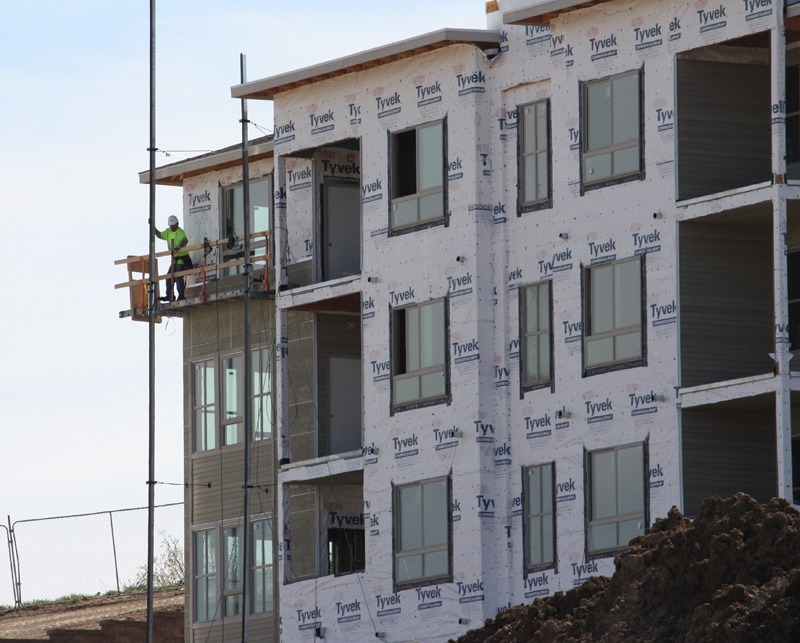After months of wrangling with the question of what to do with excess permit fees, the Pikes Peak Regional Building Department’s overseers, the Regional Building Commission, approved a resolution guiding distribution of excess funds Wednesday.
The Department, formed in 1962, manages all building permits and inspections for seven jurisdictions: El Paso County, Colorado Springs, Fountain, Manitou Springs, Monument, Palmer Lake and Green Mountain Falls.
Current Regional Building Commissioners include Green Mountain Falls Treasurer Tyler Stevens, Colorado Springs Councilman Tom Strand, and El Paso County Commissioner Mark Waller.

The Department does not deal with land-use issues or permits, which are handled by the individual jurisdictions.
Normally the Department is only allowed to collect what it needs to operate and keep a 25 to 50 percent budget reserve and it adjusts permit fees accordingly on a yearly basis. But in the event of a natural disaster, the income from tens of thousands of additional permits needed for repairs can lead to huge budget surpluses as it did in 2017 after several major hailstorms. The Department distributed more than $900,000 in 2016 and 2017 to charitable projects.
This included $200,000 to the Springs Rescue Mission, $150,000 to school districts for construction trades training programs, $150,000 to Children’s Hospital, $100,000 to El Paso County Parks and $125,000 for a program that provides new roofs to the elderly, among others.
The Department is restricted to keeping not more than a 50 percent reserve in the bank. Today, the Department’s reserve account is at more than 80 percent, according to Commissioner Strand.
This creates a problem for the Department, which has been struggling since 2016 to find a fair and reasonable way to dispose of the excess funds.
Asked why the Department couldn’t simply rebate the excess fees collected, Commissioner Mark Waller said, “Somebody calculated out that there would have been a six-dollar savings for each permit holder.”
He asked who should get the rebates, pointing out that homeowners don’t pay for the permits, contractors do. Ultimately, Waller says, it’s neither homeowners nor contractors who actually pay, it’s the insurance companies.
“Good luck figuring out how to get the money back to them,” Waller said. “Completely impossible to do.”
The Department took some heat from both the media and other public officials for previously picking recipients without any process in place to ensure fairness. “We got blown up in the Colorado Springs Independent for doing nothing more than doing good things for our community,” said Commissioner Waller.
The criticism resulted in the Department presenting a first draft of the resolution to the Commission in July, and a series of 13 meetings to tweak the language of the resolution took place between July and November.
The resolution lays out specific requirements and restrictions on applications for funding including that the applicant be a 501(c)(3) charitable organization; limiting projects to those “directly related to the construction industry and directly related to construction activity;” or to “promote the education, knowledge and awareness of the construction industry;” or to improve the “administration, implementation and enforcement” of construction codes within El Paso County.
It requires that the request demonstrate a benefit to the public and includes a long list of things that the money cannot be used for including distributions to individuals, organizations that “practice discrimination of any kind,” influencing legislation or supporting candidates for political office, producing media products or funding research projects or studies outside of El Paso County.
All three Commissioners voiced strong support for using the money to provide vocational programs in schools.
“We need to put a little bit more focus on kids being able to earn a living through some sort of vocational training or some other careers in construction,” said Waller after moving to approve the resolution. “Government’s not doing that well enough. Not because we don’t want to, but because the dollars aren’t there.”
“We can choose to do nothing with those dollars, or we can do something good with them. We can make our community a better place to live and work. We can give kids opportunities that don’t get opportunities in this world today,” he continued.
After Waller’s extended remarks, Commissioner Strand said, “When somebody has made such a passionate speech and covered the waterfront there’s no sense in me adding to it, I second the motion as made.”
The resolution passed on a unanimous vote.


